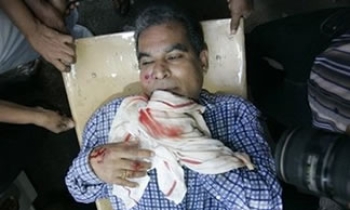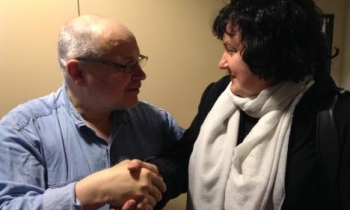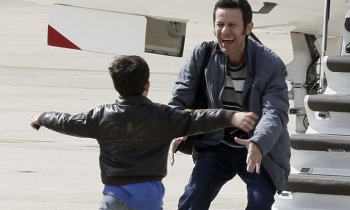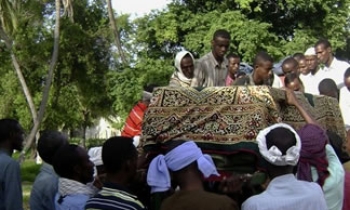Authorities in Iran's northwestern Kurdistan Province have condemned two ethnic Kurdish journalists to death for acting against the country's national security, according to delayed reports. Journalists Adnan Hassanpour and Abdolvahed “Hiva” Botimar were sentenced to death by a revolutionary tribunal in Marivan, in Iran’s Kurdish northwestern region, on July 16.
Hassanpour worked for the magazine Asou, which has been banned since August 2005 as a result of a decision by the Ministry of Culture and Islamic Guidance. He wrote about the extremely sensitive Kurdish issue.
At his trial, which was held behind closed doors, he was found guilty of “activities subverting national security” and “spying.” His interviews for foreign news media including Voice of America were cited by the prosecution. According to his family and one of his lawyers, Sirvan Hosmandi, he was transferred to Sanandaj prison on July 18.
Hassanpur's sister rejected such suggestions in comments to Radio Farda. "I think his only [offence] is his pen and the articles he has written," she said. "As Adnan's sister, I know all about him — he didn't have any relation to any political party inside or outside Iran. All our relatives and friends know that Adnan was not related to any [opposition] parties and he's been a totally independent journalist."
The charges on which Botimar, a contributor to Asou and an active member of the environmental NGO Sabzchia, was sentenced to death were not immediately known.
“These death sentences are outrageous and shameful,” Reporters sans Frontières (RSF) said. “They show how little Iran is bothered by international humanitarian law. They also show how determined it is to use every possible means to silence the most outspoken journalists and human rights activists.”
Three other Kurdish journalists are currently in prison in Iran. Ejlal Ghavani of Payam-e Mardom-e Kurdestan, a weekly that was suspended in 2004, was detained on July 9 after being convicted by a court in Sanandaj of “inciting the population to revolt” and “activities against national security.”
Mohammad Sadegh Kabovand, Payam-e Mardom-e Kurdestan’s editor and the founder of a human rights organisation, was arrested on July 1 and transferred to Evin prison. He has not been officially charged. Kaveh Javanmard of weekly Karfto is currently serving a two-year prison sentence. He was not allowed access to a lawyer during his trial, which took place behind closed doors.
With a total of eight journalists currently detained, Iran continues to be the Middle East’s biggest prison for the press and one of the world’s ten most repressive countries as regards freedom of expression in the media. Mahmoud Ahmadinejad is on the RSF's list of the world’s 34 worst “press freedom predators.” Since he became president in August 2005, the authorities have cracked down hard on journalists. The situation is especially fraught in the Kurdish northwest.
RSF said, “We appeal to the international community to ask Iran to reverse this decision and to refrain from executing two men who did nothing but exercise their right to inform their fellow citizens. Iran is in the process of becoming one of the world’s biggest prison for journalists.”









